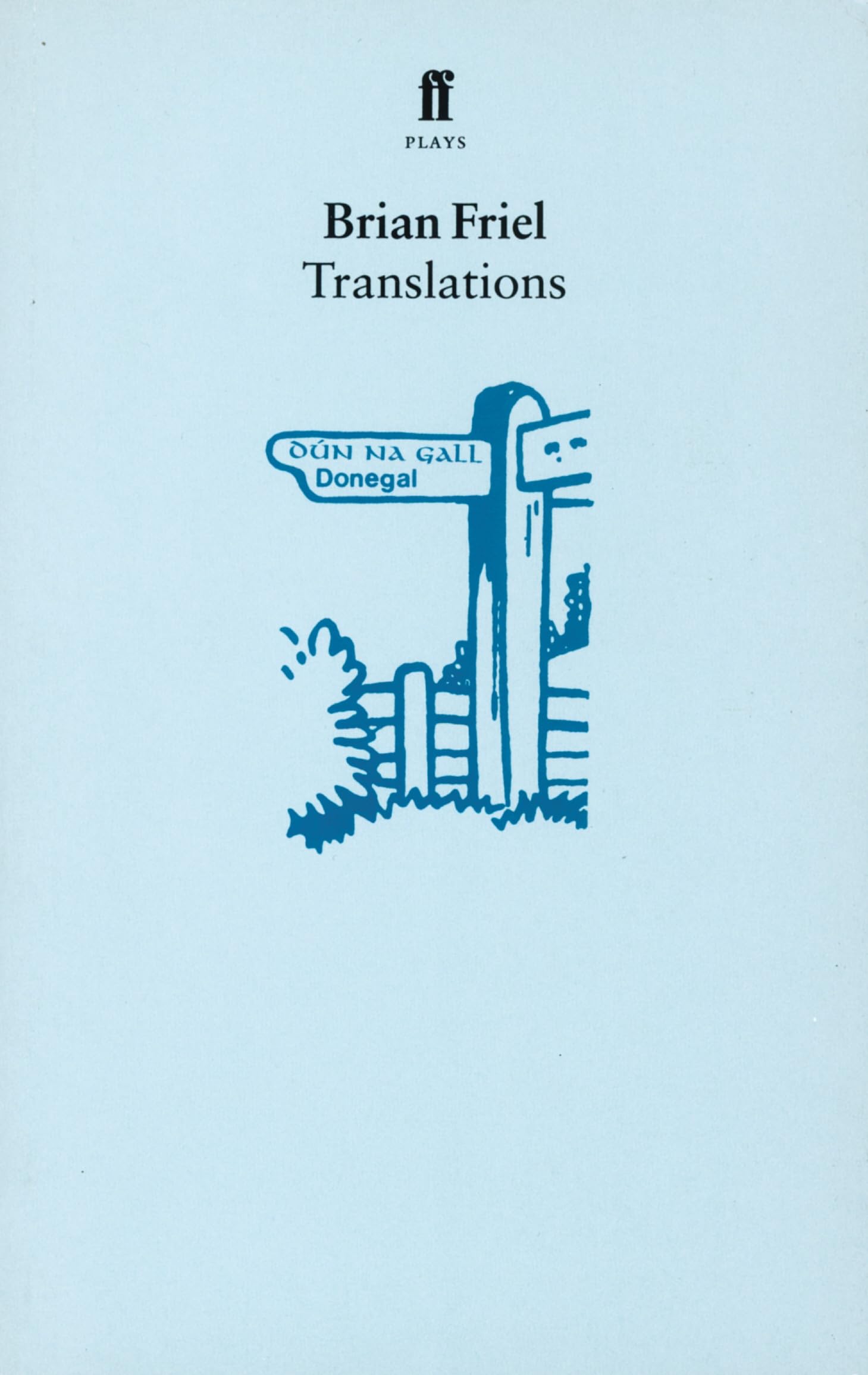

Translations (Faber Drama)
S**Y
Magical
Ireland under British occupation, from the point of view of its Irish speaking population, and a young British soldier who falls in love with them.
K**E
the loss of languages
an eloquent, moving play about the love of one's native language (Irish) and the plight of lost languages (Latin, ancient Greek, and so on). Of course, it was written after the largely successful revival of the Irish language. There's your delayed "happy ending." (It's not the same, though, not by a long shot.)the nice thing about friel's play is that he conveys the machine of colonialism with the appropriate complexity--it isn't "bad Englishman, good Irishman," but something much more complex. sometimes people like Owen, unwittingly or not, sell out their own. Sometimes others, for example the English soldier here, are part of the colonial apparatus, but not consciously or intentionally--and such people may end up being the colonized culture's greatest champions.I liked it better than Dancing at Lughnasa. It reads well--and a lot of plays don't.
J**A
Prompt service
Good quality
M**E
Literature at its best
A deeply perceptive view of the colonists and the colonised. Yolland''S honesty and Hugh' S lucid and painful acknowledgement of the future of his country are sadly brilliant
M**W
Not 'Very Good' but fast
"Very good" was only Acceptable: a slightly crumpled & stained book. It arrived quickly enough, though.
A**R
Very good
Very good
R**S
The book was basically new
I think I bought a used version of this, but either way, it looked like new to me. I'm glad with my purchase.
J**R
Five Stars
One of Friel's masterpieces
J**K
Diglossic and linguistically entertaining with romance.
Mostly inspired based on true events beside the method of influencing the islanders. A subtle love square that further shows conflict between British and colonized hypothetical town.Map and names are symbols for the changed translations and lost of original contexts.
A**Z
Stockholm syndrome
A profound analysis of Ireland and England's relationship. Brian Friel's play does show the "falling to pieces" world of the ancient; the world of philosophy that gave birth to modernity ; the world of culture and the classics in which a type of man reign supreme: the humanist. In opposition to this, the "world being constructed" of the modern; the world of logics and calculus that begot a new modernity; the world of the global and the "ouvres" of the style tailored to convenience in which a type of man is dethroned for he falls short of qualities and becomes a non-entity. All in all, an excellent text to go into the colonial enterprise of England -even of the Western world- and the reception of the colonised -Ireland, the rest of the world. In the end, don't we (the non-natives English speakers) suffer from the Stockholm syndrome?
M**5
Una obra maestra y comprometida de Brian Friel.
Es una obra que había visto en inglés en Irlanda hace años y me interesaba volver a leerla para hacer un análisis en una asignatura de un máster literario.
A**A
Un piccolo gioiello teatrale
Una pièce teatrale profonda e toccante incentrata sul tema dell'incomunicabilità tra due mondi, quello inglese e quell irlandese, che si traduce dell'impossibilità di eaprimere i sentimenti e le paure di una vita appesa al filo sottile dell'inevitabile. Una storia di immensa sensibilità che apre una visione profonda su un periodo storico davvero importante per l'Irlanda, punto di svolta dopo il quale nulla sarà più lo stesso per loro: non la vita, non i nomi di questa terra magica e unica di cui gli inglesi hanno cercato di appropriarsi.
E**Y
The play itself is fantastic, and there are many other reviews here already ...
The play itself is fantastic, and there are many other reviews here already going into more detail about the content. However, I just wanted to add a small note about this particular edition, which I recently ordered, and the fact that it has a (very ironic) mistake on the front cover. "Dún na Gall" should be written "Dún na nGall" due to the tuiseal ginideach and having two nouns together in the placename (the Fort of the Foreigners). Any Irish speakers who try to pronounce it as written on this book cover will have a hard time doing so. Not exactly a major product flaw but a very funny one given the context of this play and its production.
Trustpilot
2 weeks ago
4 days ago